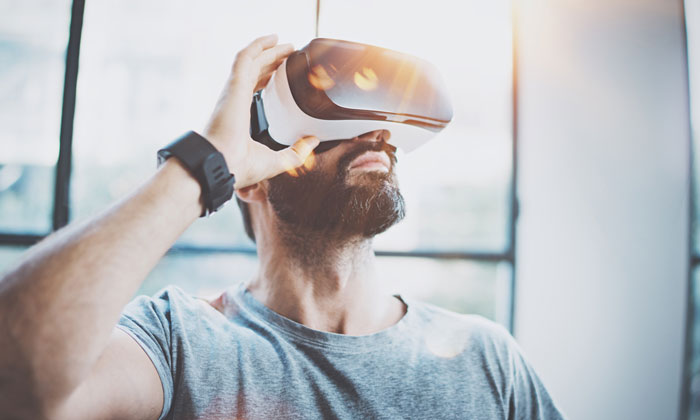Research shows promise for VR in mental health care
Posted: 10 May 2017 | Niamh Marriott (Drug Target Review) | No comments yet
A growing body of evidence suggests that virtual reality (VR) technology can be an effective part of treatment for phobias, posttraumatic stress disorder, and other mental health conditions, according to new research.


A growing body of evidence suggests that virtual reality (VR) technology can be an effective part of treatment for phobias, posttraumatic stress disorder, and other mental health conditions, according to new research.
“Virtual reality is potentially a powerful tool for the psychiatric community,” comments lead author Jessica Maples-Keller, PhD, of University of Georgia.
“It allows providers to create computer-generated environments in a controlled setting, which can be used to create a sense of presence and immersion in the feared environment for individuals suffering from anxiety disorders.”
Formulating theory
Dr Maples-Keller and colleagues review the current state of research on VR technology for psychiatric treatment. So far, research in this area has focused on exposure-based treatment for certain types of anxiety disorders. Studies have evaluated VR applications for progressive exposure to frightening situations in patients with specific phobias – especially fear of flying. Other studies have evaluated the use of VR for treatment of post-traumatic stress disorder in combat veterans.
Automation now plays a central role in discovery. From self-driving laboratories to real-time bioprocessing
This report explores how data-driven systems improve reproducibility, speed decisions and make scale achievable across research and development.
Inside the report:
- Advance discovery through miniaturised, high-throughput and animal-free systems
- Integrate AI, robotics and analytics to speed decision-making
- Streamline cell therapy and bioprocess QC for scale and compliance
- And more!
This report unlocks perspectives that show how automation is changing the scale and quality of discovery. The result is faster insight, stronger data and better science – access your free copy today
Virtual reality applications can simulate exposures that would be costly or impractical to re-create in real life, such as airplane flight or combat conditions. It also enables the therapist to control the “dose” and specific aspects of the exposure environment. For example, the patient can “virtually” experience repeated take offs and landings without going on an actual flight.
Benefit for anxiety disorder
Based on available evidence, VR has significant benefits in these types of anxiety disorders. Studies of flight phobia have reported significant and lasting reductions in flight-related anxiety. Patients report satisfaction with VR-based therapy, and in some cases find it more acceptable than traditional therapy.
Virtual reality has been studied in a wide range of conditions as well, including panic disorder, schizophrenia, acute and chronic pain, addictions (including smoking), and eating disorders. However, research on VR applications has important limitations including small numbers of patients and lack of comparison groups. The authors note that mental health care providers will need specific training before integrating VR approaches into clinical practice.
“With the cost of head-mounted displays coming down and smaller smartphone applications being developed, it is likely that virtual reality applications will proliferate,” Dr Maples-Keller and colleagues conclude.
“It will be important that these are treated as tools and therapists are properly trained in their applications.” The authors also note the exciting possibility VR provides to conduct methodologically rigorous and controlled clinical research.
Related topics
Informatics, Internet of Medical Things, Lab Automation, Research & Development, Robotics
Related conditions
Chronic pain, Panic disorder, Schizophrenia
Related organisations
University of Georgia
Related people
Jessica Maples-Keller








